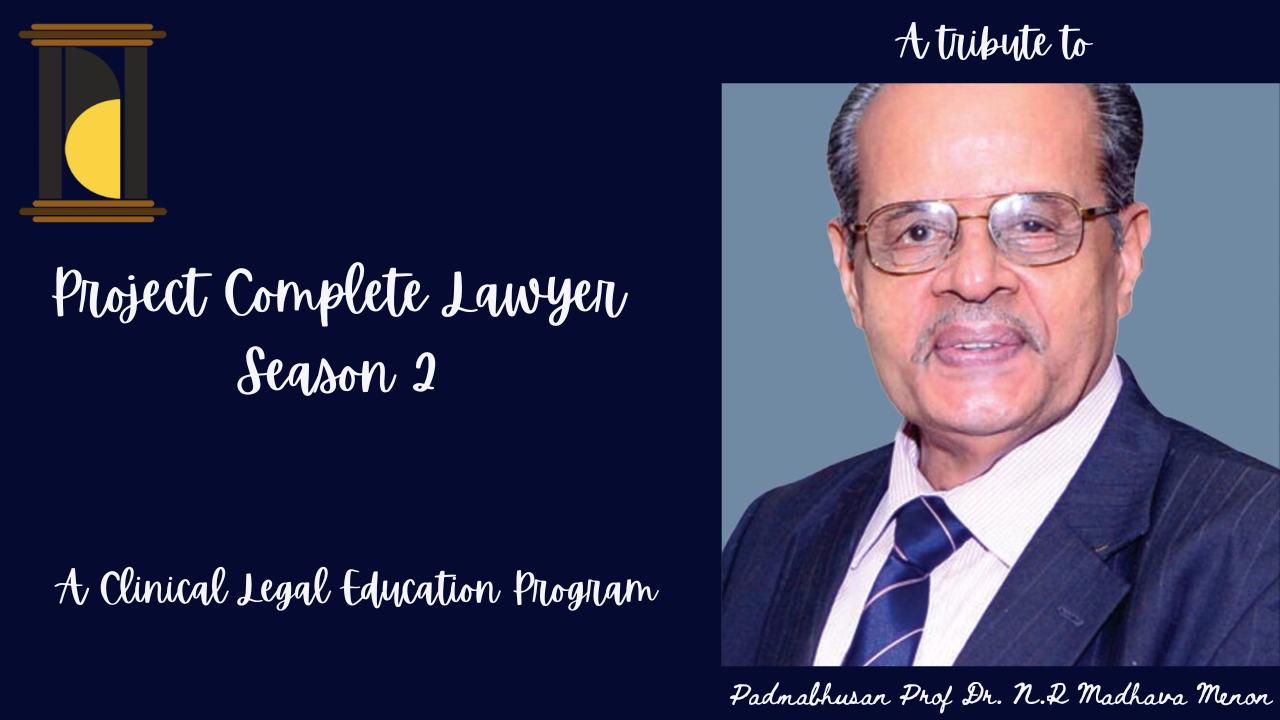A.
Course
Description
Welcome to Introduction to the Law of Arbitration!! In
your introduction to the world of arbitration, you will study the
importance of arbitration as a dispute resolution mechanism, in the changing
world beyond the territorial jurisdiction of different countries.
B. Course Aims
·
To
provide an understanding of the general principles of domestic and
international arbitration and its relationship to other dispute resolution
processes. The course will provide candidates with an introduction to the legal
framework, best practices and procedures.
It also aims at comparing the arbitral law and practice in India and UK.
C. Course Duration.
·
The duration of the course is 50 hours, which
includes 32 hours devoted to online instructions, 8 hours for assessment and assignments and
10 hours of interaction with experts in profession.
D.
Expected
Learning Outcomes:
·
On
successful completion of this course candidates will be able to:
- Understand the background
of domestic and international arbitration;
- Understand arbitration in
the context of other forms of dispute resolution;
- Role of Courts and
Arbitrator;
- Describe the processes and
procedures of domestic and international arbitration.
- Challenge and Enforcement
of Arbitration Awards.
E.
Course
Format:
- The Online instructions will be provided in the Moodle Platform;
- The Online instructions will be a combination of recorded online lectures, live interactive sessions
and assignments.
- Recorded
sessions will be available on the Moodle platform. The live sessions will build
upon the foundational knowledge gained from the recorded videos.
- Live
interactive sessions will be held every weekend, totaling four sessions per
month.
- Each
interactive lecture session will have a duration of 2 hours, preferably on
Saturdays at 4PM.
- The
course will be designed as interactive sessions, allowing Participants to
engage with experts in the field.
- Interactive
session with experts in the field will be scheduled on Sundays. Participants will receive advance
notification regarding such sessions. There will be a total of 5 such lectures duration
of 2 hours each.
F.
Classroom
Policies
Class Decorum –
- When a lecture is in progress, do not interfere in any manner.
- A Q&A session will follow every lecture session, where the
participants may raise any questions and make valid observations about the
content of the lecture.
- Participants must maintain proper decorum in online classes and be
respectful of others attending the class.
- Participants shall keep their videos on, during the online sessions
G.
Grading &
Evaluation
●
A total of three assignments will be
uploaded on the Moodle platform. Participants are required to complete these
assignments within the prescribed time.
●
Participants are required to complete a
research paper of minimum 1500 words and maximum 3000 words. The paper will be
scrutinized and reviewed by subject experts.
H.
Readings
●
Learning materials for the course includes legislations,
judgments, and articles.
●
Most importantly, notes/points that come out of our class
discussions will be helpful.
●
A
short note will be provided along with every video as reference material.
Legislations –
✓
Arbitration and Conciliation
Act, 1996.
✓
English Arbitration Act 1996.
✓
UNCITRAL
Model Law.
✓
UNCITRAL
Model Rules.
✓
Rules
of the Arbitral Institutions
Reference Books
–
- A
reference text will be provided by the course coordinators.
- Everything
You Need to Know about Arbitration in India by Tariq Khan (optional)
Caution: While
accessing online resources for reference, be careful to avoid unreliable websites. Make sure
your source is legit.
I.
About the
Course Instructor
Adv. Johnson Gomez is a highly qualified instructor with extensive expertise in
the field of Arbitration Law. He is a Fellow of Chartered Institute of
Arbitrators (UK). He brings a wealth of
knowledge and experience to the course. With a remarkable 33-year tenure in the
legal field, he has established himself as a prominent figure, serving the
Senior Partner in the law firm, Gomez and Gomez Associates.
His proficiency extends across various arbitration domains, including domestic and
international arbitrations. His impressive track record as an Arbitrator and
Arbitration Counsel and his vast expertise and comprehensive understanding of Arbitration
Law, would enable him to guide Participants through the intricacies of the
Course.
J.
Syllabus
FUNDAMENTALS OF
ARBITRATION (MONTH 1- WEEK 1 & 2)
In the first month of this
course, learners will be given an introduction to the field of Arbitration. We
will discuss arbitration as a dispute resolution method and the different types
of arbitrations that exist in the world.
Agendas
and Questions for the month:
(1)
What is Arbitration?
(2)
What is the difference between Ad hoc and Institutional Arbitration?
(3)
What is the difference between Domestic and
International Arbitration?
(4)
Difference between Arbitration and other dispute resolution
methods?
(5)
A discussion on the merits of Litigation
vs Arbitration
(6)
A discussion on the different types of industry specific
arbitration; eg., construction, maritime and investment arbitration.
INTERNATIONAL LAWS
RELATED TO ARBITRATION (MONTH 1 - WEEK 2 & 4)
This month discusses
arbitration from an international perspective. We will also start discussions
into the practical process of arbitration by learning about international
arbitration agreements and their enforcement.
Agendas for the
month:
(1)
Implementing UNCITRAL Model law in member states.
(2) Arbitration
as a universally acceptable dispute resolution method.
(3) The
Convention on the Recognition and Enforcement of Foreign Arbitral Awards,
commonly known as the New York Convention
(4) Part II of
The Arbitration and Conciliation Act, 1996.
(5) Enforcement
of Foreign Arbitration
Awards in India
ARBITRATION IN INDIA AND ENGLAND (MONTH 2 -
WEEK 1 & 2)
This month will contain a comparative study of Arbitration
under the English Law and how the English system has influenced the Arbitration
Laws in India.
Agendas
and Questions for the month:
(1)
General
Principles of Arbitration with reference to the English Arbitration Act 1996
a. fair resolution of disputes
by an impartial tribunal without unnecessary delay and expenses
b. party autonomy in
arbitration process
c. Limited interference of
courts.
(2)
General
duties of the Arbitral Tribunal, with reference to Section
33 of the English Arbitration Act 1996
(3) General duties of the
Parties, with reference to Section 40 of the English Arbitration Act
(4) Concept of serious
irregularities and Challenge against the Award under Section 68 of the English
Arbitration Act 1996
(5) A comparative analysis of
English Arbitration Act 1996 with reference to the Arbitration and Conciliation
Act 1996
ABITRATION PROCESS
(MONTH 2- WEEK 3 & 4)
In
this month we will discuss the procedure for appointing an arbitrator, the laws
that govern such appointments, and the process of how an arbitrator passes an
award.
Agendas and
Questions for the month:
(1)
Pathological Clauses in Arbitration Agreements
(2)
Importance of Chapter V and VII of the Arbitration Act
(3)
Importance of Section 16 of the Act
(4)
Application of Civil Procedure Code and The Indian Evidence Act in
Arbitration.
COURTS AND ARBITRATION: AWARDS, APPEAL AND ENFORCEMENT
(MONTH_3)
In this month of the course,
we will discuss assistance of courts in the arbitration process, essentials of
an enforceable arbitration award, challenge against the arbitral awards orders
of the court and enforcement of arbitration awards. This month will focus on
both the theoretical background and the practical effects of an arbitration
award.
(1) Interim
Measures
(2) Appointment of
Arbitrator
(3) Removal of
Arbitrator
(4) Extension of
Time
(5) Assistance in the Arbitral
Process
(6) Essentials of an
enforceable arbitration award
(7) Challenge against Arbitration
Awards
(8) Appeal against
order of court and arbitrator
(9) Enforcement of
an award
THE WAY FORWARD (MONTH 4)
In
the last month of the course, we will briefly revise the essential concepts
learned throughout the course and discuss how the process of arbitration in India
can be evolved moving forward.
This
month’s discussions will include:
1) The problems with
arbitration in practice.
2) Issues with unnecessary
intervention by courts.
3) Areas of Arbitration law
that lack clarity and transparency.
4) Suggested changes to make
the practice of arbitration in India more efficient and effective.
Details for Registration
Applications will be
invited through a Google form. Registrations will be accepted only on the basis
of submitting google forms.
https://forms.gle/dPmfutD6LFrmVGjL6
For any queries please contact:
Course Co Ordinator
Sanjay Johnson, Advocate, High Court of Kerala - Mobile 9567457405
Student Co Ordinator
Meena P – 7907057302
Kishor Kumar K - 8606600930



